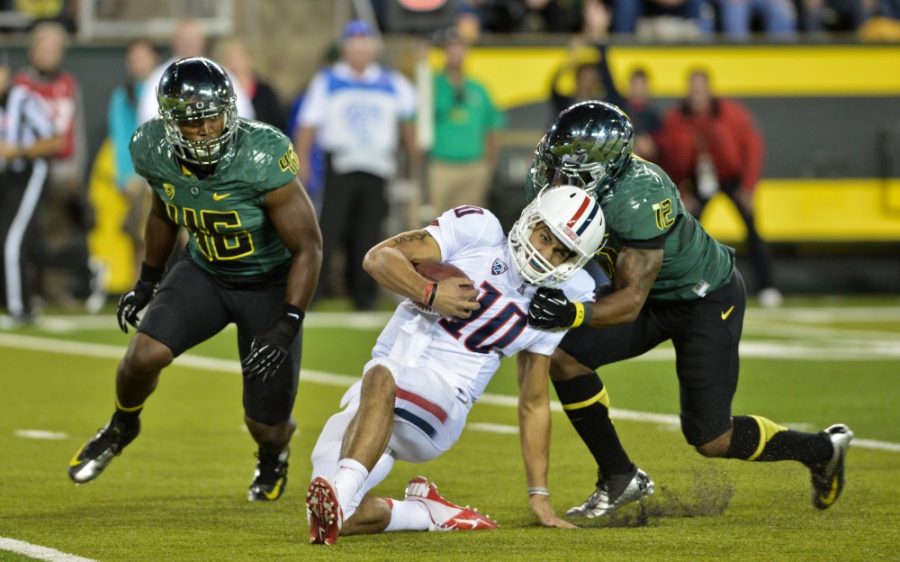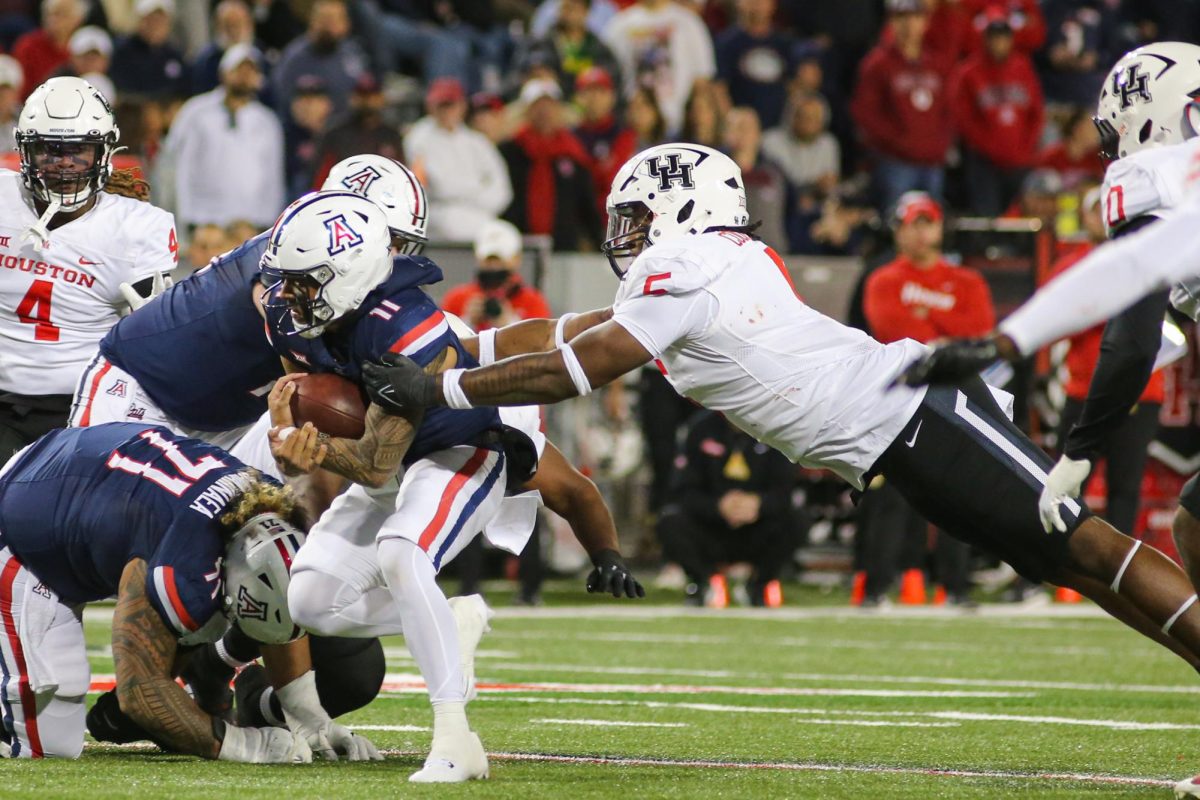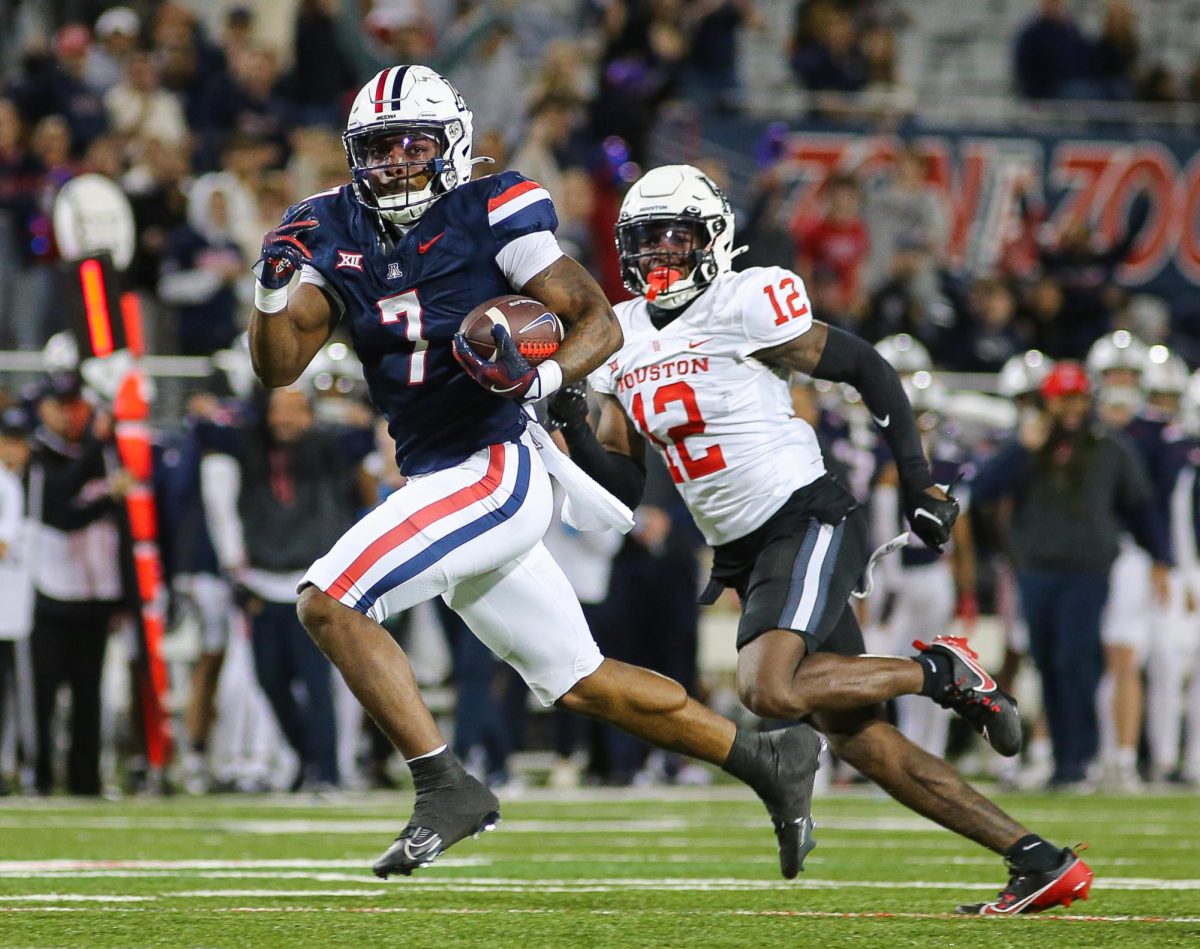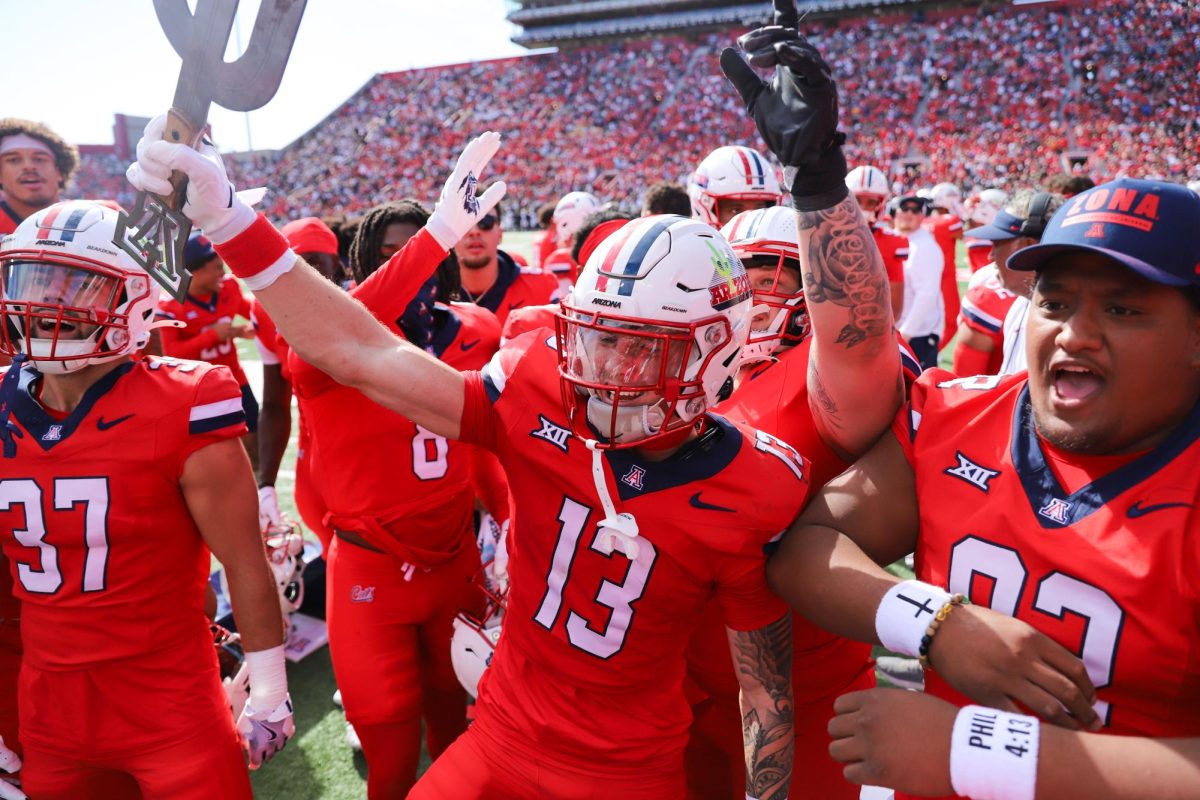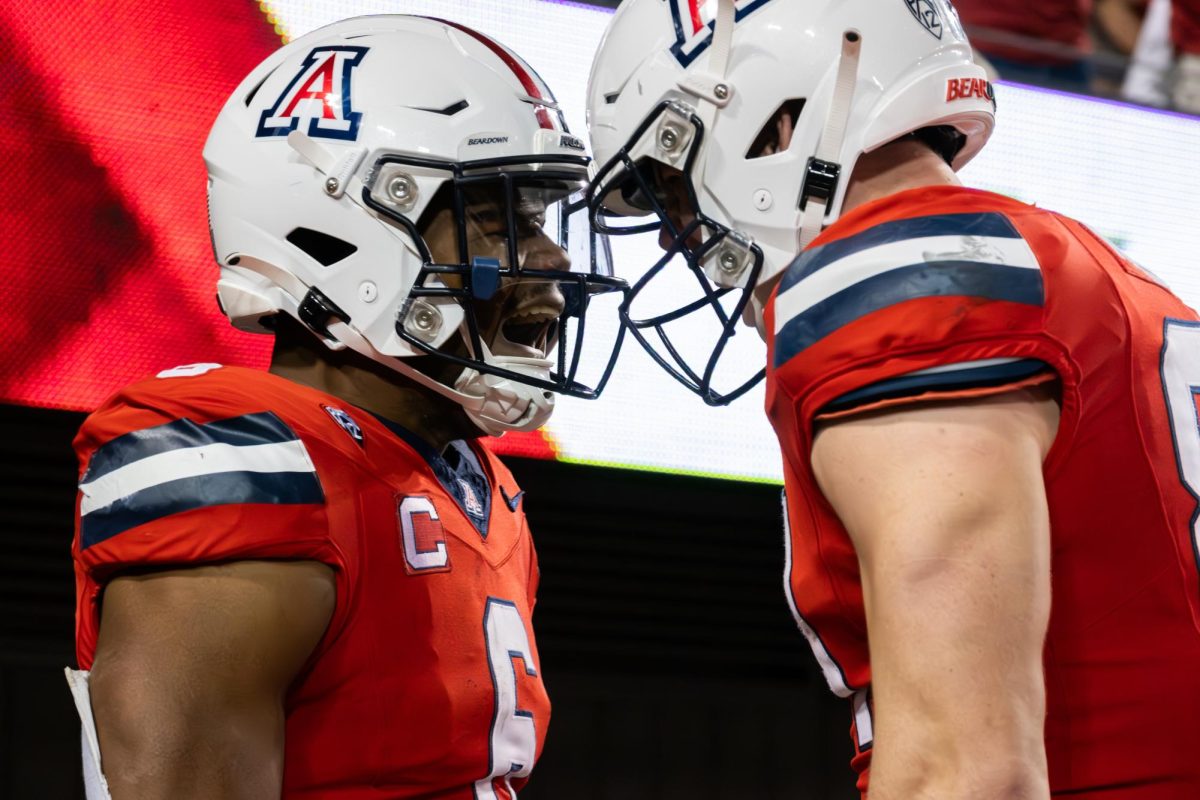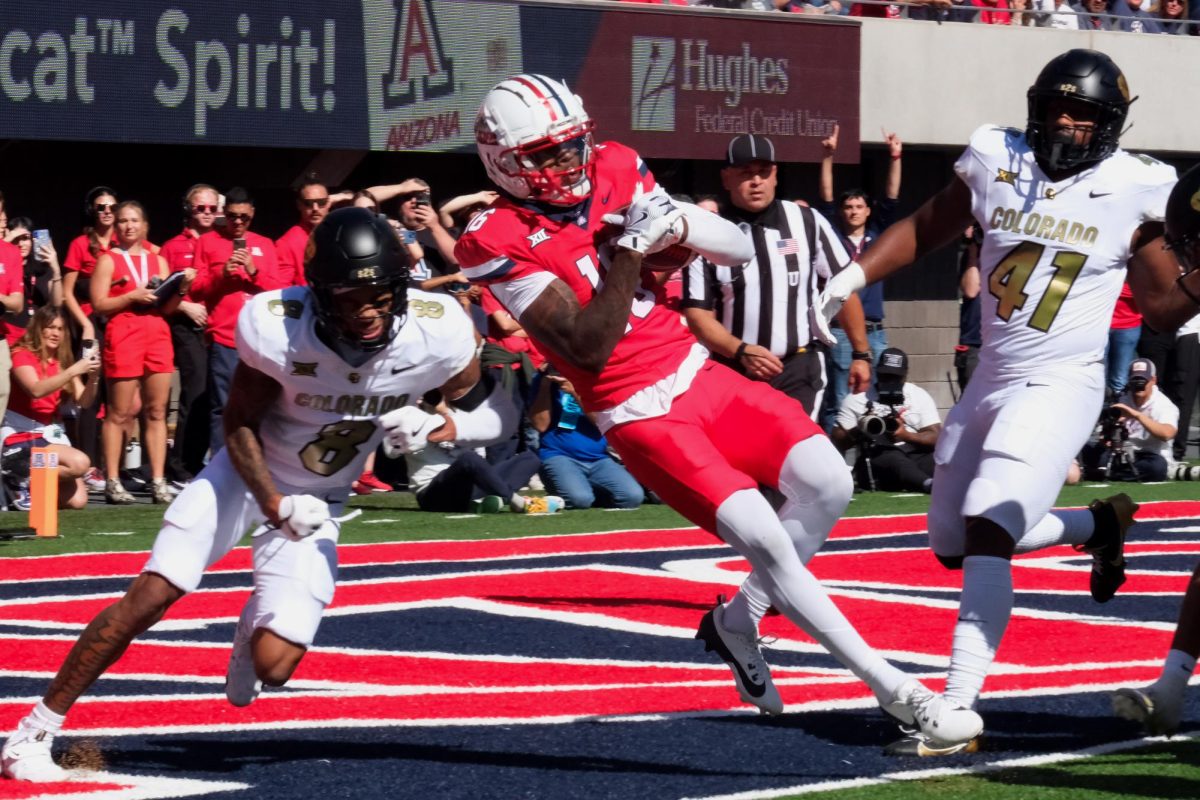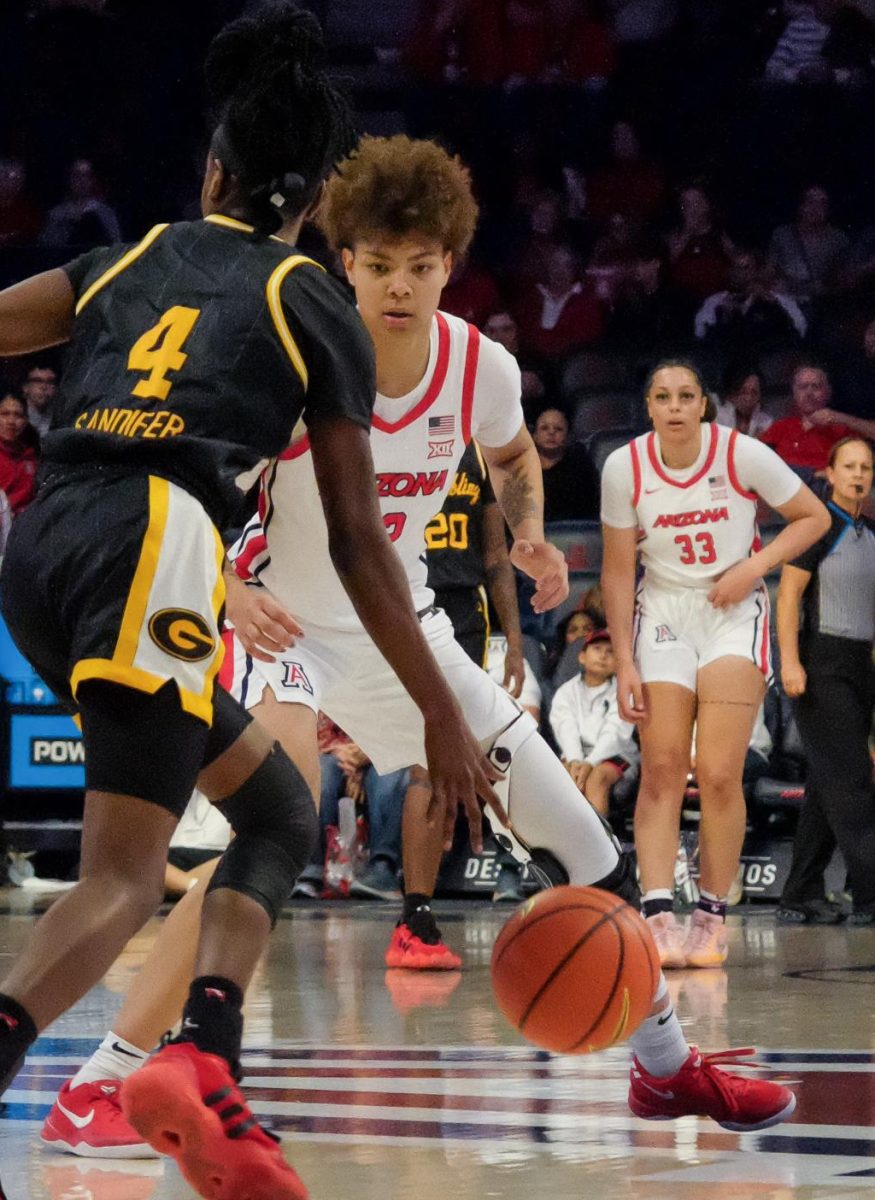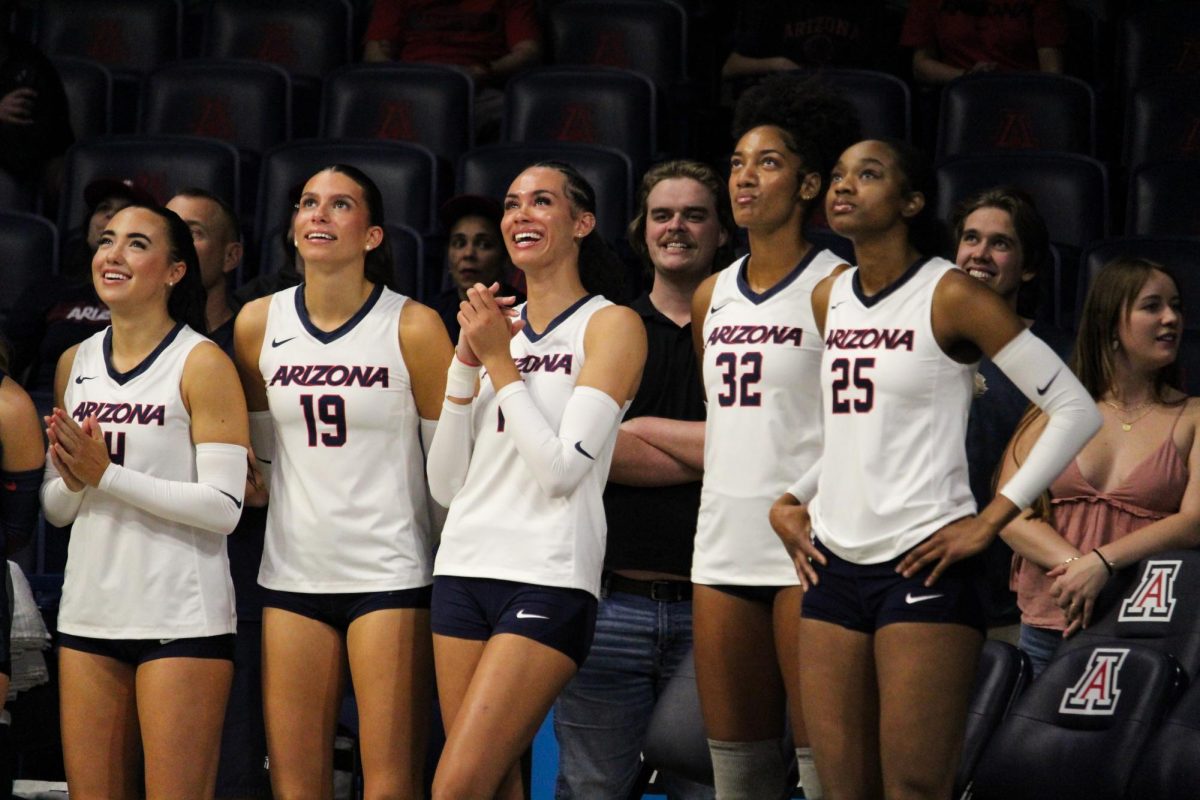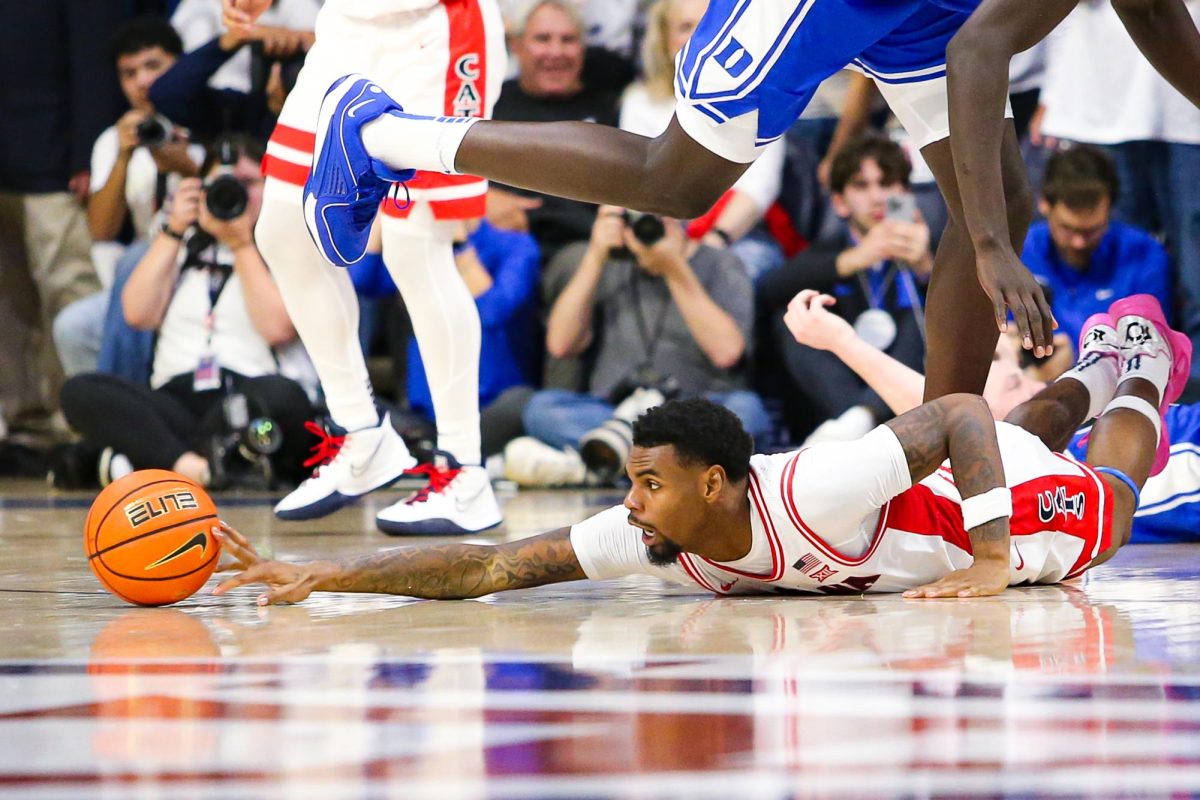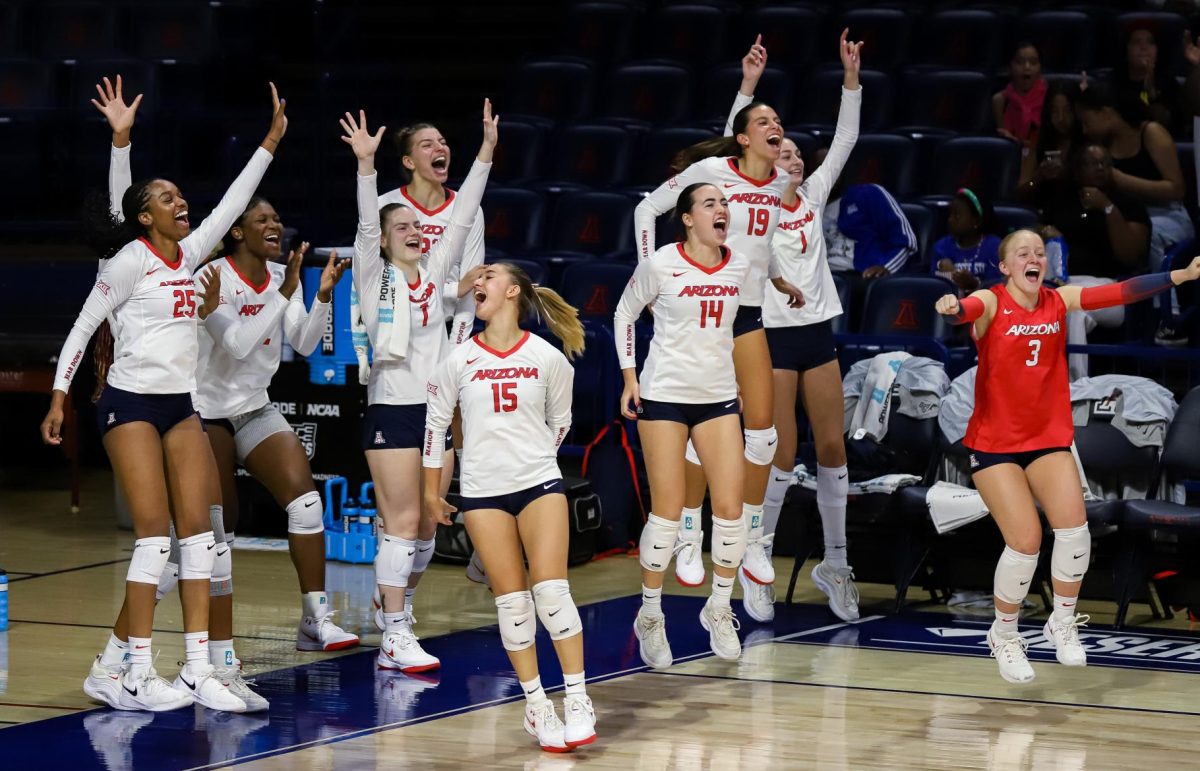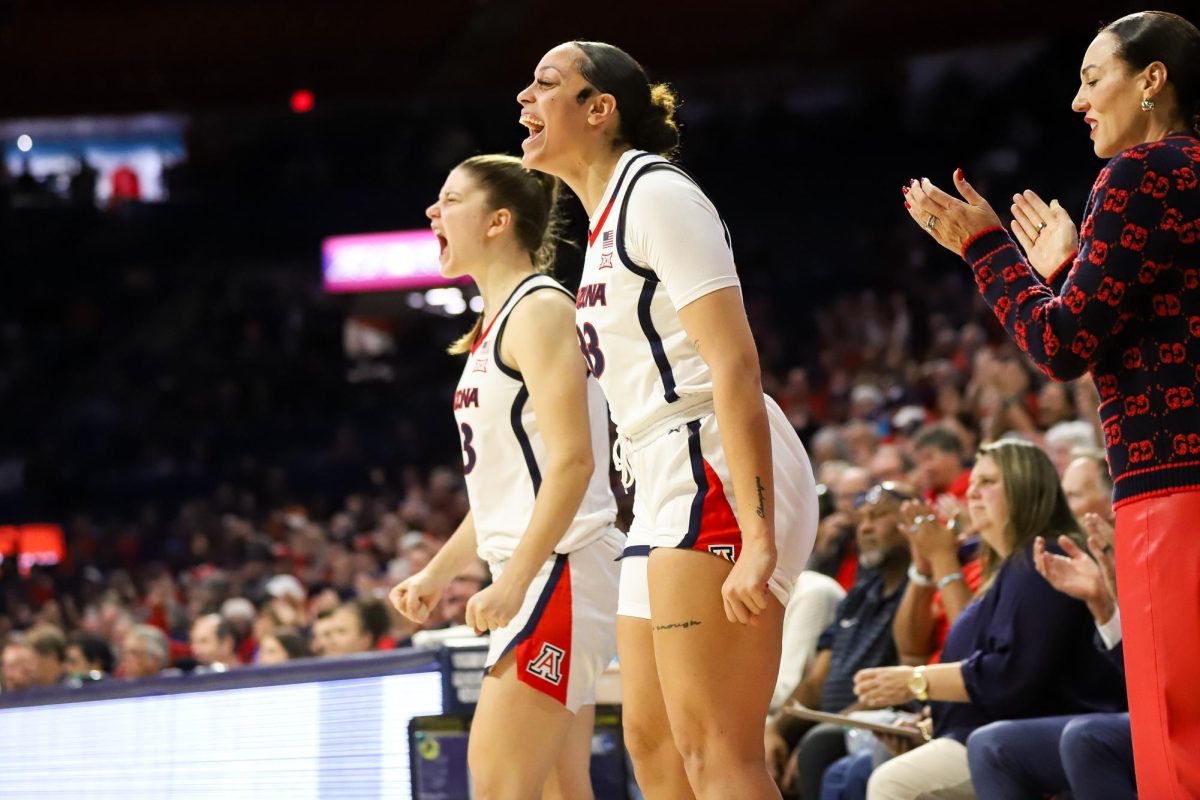EUGENE, Ore.— Matt Scott leaned against a wall outside the visitors’ locker room at an empty Autzen Stadium. 30 minutes earlier, a raucous sell-out crowd of 58,334 cleared out after Oregon trounced the Wildcats 49-0.
Scott was slouching, but his head was not down. The senior quarterback didn’t have much to say to the three or four media members asking him questions. He was soft-spoken and understandably upset after what may have been the worst performance of his career.
He didn’t want to talk about a hip injury suffered toward the end of the first quarter that cost him a few plays, the impact the injury had on his performance (he threw three interceptions) or the Wildcats’ struggles in the red zone (they were 0-for-6).
Then, Scott was asked if he felt this particular loss would be harder to move on from than most.
“I don’t think so,” he said. “It’s one game. We’ll probably see these guys in the championship.”
He didn’t even hesitate. In his mind, Arizona can still win the Pac-12 South.
After a 3-0 start that no one really expected, the Wildcats reached No. 22 in the AP top 25 poll, and excitement started building for the new football team led by Rich Rodriguez.
Then there was Oregon. The score doesn’t show it, but the Wildcats legitimately could have at least kept the game close.
Scott was wildly inaccurate, but the loss wasn’t entirely his fault. Those three interceptions — all of which led to scores for the Ducks — certainly didn’t help. After completing 71.5 percent of his passes through three weeks, he completed just 50 percent of 44 attempts and had a season-low 210 passing yards.
At halftime, he led the UA with 18 rushing yards, but the hip injury prevented him from running the ball at all in the second half.
Nobody was ready to place the blame on their quarterback after the game.
“It’s not on one man,” running back Daniel Jenkins said. “It’s not on any one man. As a team, we lost. We win as a team, we lose as a team. We gotta get back to the drawing board and do what we do.”
He’s right, it’s not all on Scott, although he didn’t exactly help the cause. Johnny Jackson’s fumble, the offensive line’s struggles in the run game, two botched field goal attempts and Tyler Slavin dropping two sure-fire touchdowns all factored into the loss.
Now Arizona has dropped out of the AP Top 25, and all of the wildly exaggerated expectations that came about after Arizona upset Oklahoma State can be thrown out the window.
The loss didn’t faze Scott, and while his championship aspirations are admirable, especially in the face of such a depressing defeat, the likelihood of an Arizona-Oregon re-match this season is slim to none.
But he did have a point — the season is far from over.
People need to understand that this is, and always has been, a rebuilding project. Arizona’s fast start might have diluted that idea for a few weeks, but it still remains true. Rome wasn’t built in a day, and the Wildcats won’t win the Rose Bowl this year.
The 3-0 start was a pleasant surprise. It was also a pleasant surprise in 2001, John Mackovic’s first year as UA head coach, when Arizona won its first three games, only to lose its next five and finish a game shy of bowl eligibility.
Ever since he came to Tucson in November, Rodriguez has been preaching his intention to change the culture of Arizona football.
The players, at least publically, seem to have bought in.
When the Wildcats take on No. 18 Oregon State, No. 8 Stanford, No. 13 USC and UCLA in the coming weeks, we’ll see if this team can practice what it’s preached.
— Zack Rosenblatt is the sports editor. He can be reached at sports@wildcat.arizona.edu or via Twitter ZackBlatt and WildcatSports



